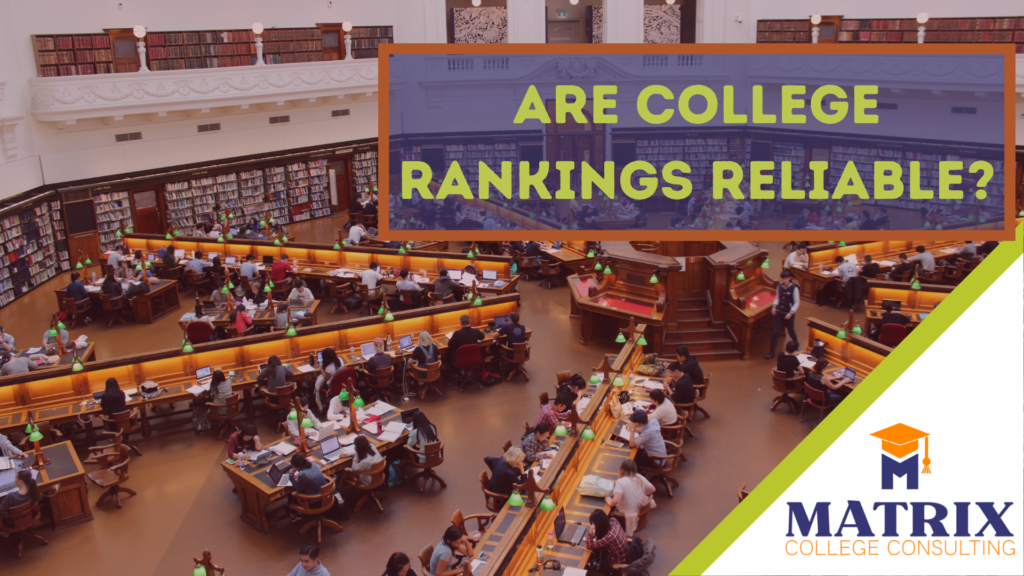College rankings are everywhere; it’s hard to avoid them. High school students and their parents might look at college rankings for lots of reasons. They want to get a general sense of the quality of education at a particular school, and rankings make it seem easy to compare schools and to narrow down a list of potential schools.

But while it can be tempting to use these lists to guide your choices, doing so has its risks. It’s important to use college ranking websites as just one small factor in decision making. There are several reasons why college rankings may be considered unreliable or questionable:
- They often rely on subjective criteria: Many college rankings are based on subjective criteria such as the reputation of the school or the opinions of educators and professionals. These criteria can vary widely, are often non-transparent, and may not accurately reflect the quality of education at a particular school.
- They do not take into account the specific needs of your child: College rankings are often based on a one-size-fits-all approach, which may not take into account the needs and goals of individual students. For example, a school that ranks highly for a major your child is interested in pursuing will not consider your child’s learning needs, environmental preferences (things like cooperative learning groups, first year acclimation opportunities, and professor accessibility), or social fit.
- They may not consider the overall cost of attendance: College rankings often do not take into account the overall cost of attending, including tuition, fees, and living expenses. This can make it difficult for students and their families to make informed decisions about which school is the most affordable option.
- They may not be updated frequently enough: College rankings are typically based on data that is several years old, which means they may not accurately reflect the current state of a particular school. This can make it difficult for students to get an accurate picture of what a school is really like.
- Rankings are money-makers. Lists of “best” colleges are highly clickable, and this means they are also lucrative. Colleges know this, and many will do whatever it takes to raise their status within the big-name rankings. It’s a shady part of college admissions.
Overall, while college rankings can be a useful resource for students and their families, it is important to carefully consider the limitations of these rankings and to use them as just one factor in the college selection process. There are many great resources other than rankings to help your child select colleges. If you’d like to know how your child can find a college that’s just right for them, please reach out. I’d love to talk to you!





